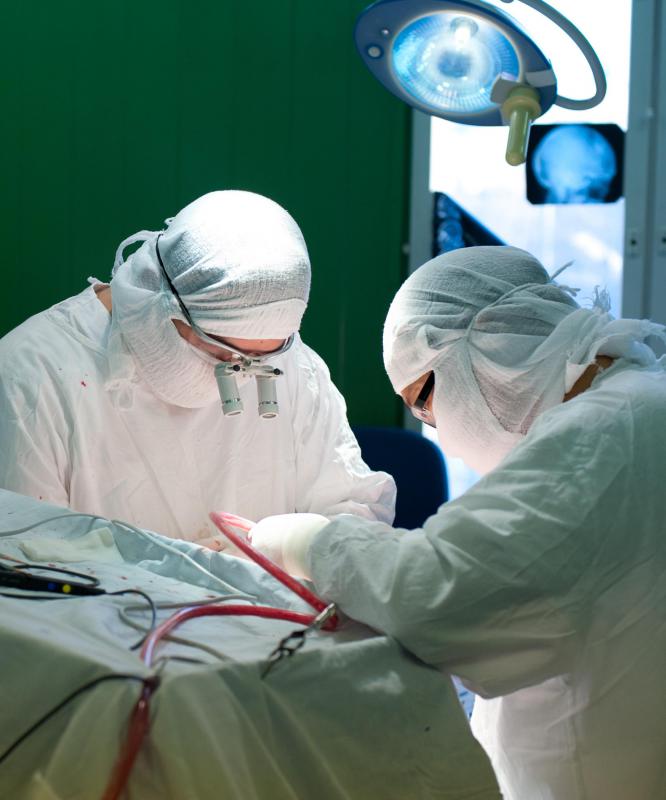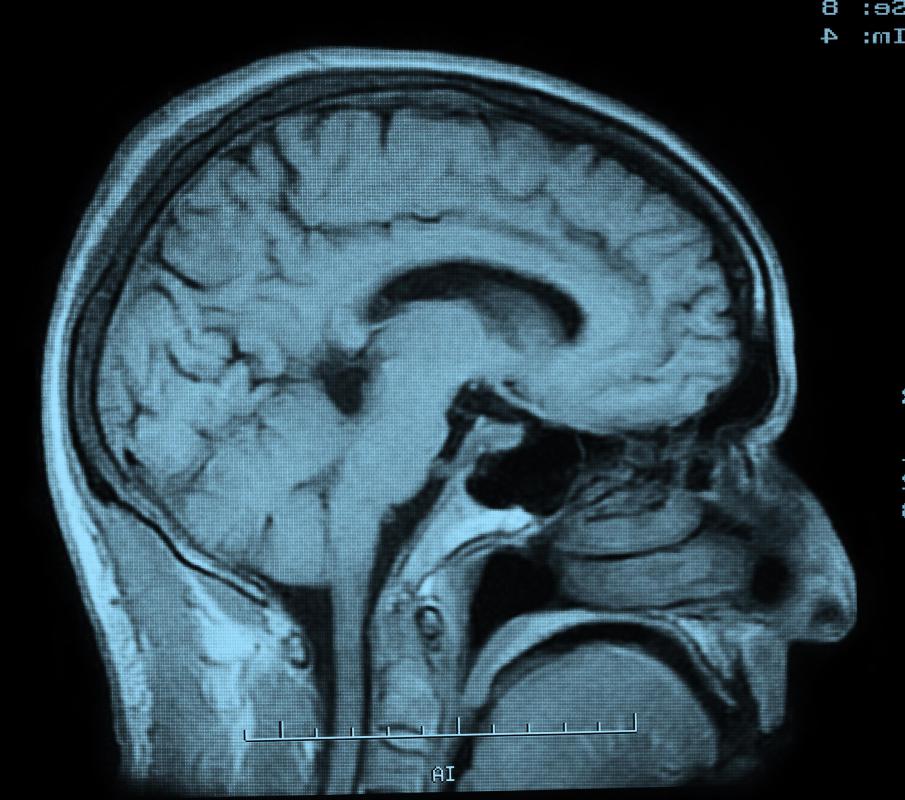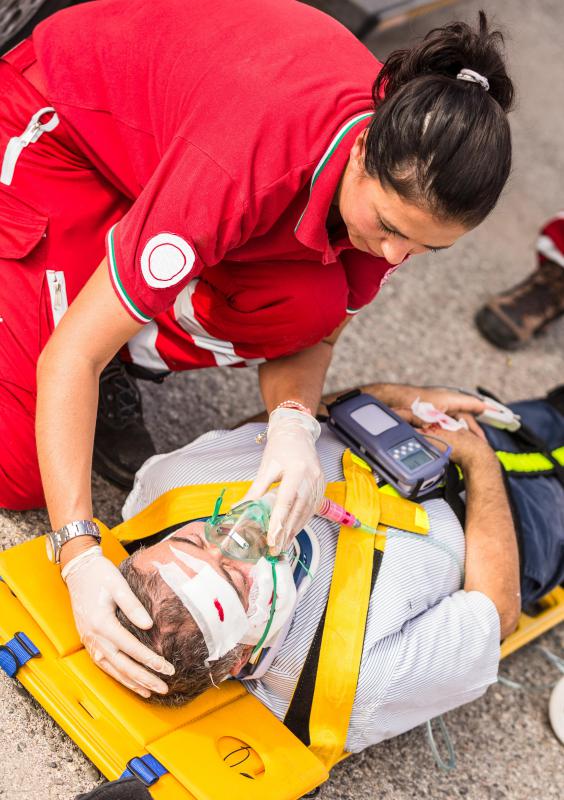At TheHealthBoard, we're committed to delivering accurate, trustworthy information. Our expert-authored content is rigorously fact-checked and sourced from credible authorities. Discover how we uphold the highest standards in providing you with reliable knowledge.
What are the Causes of Brain Lesions?
Brain lesions, changes to the tissue of the brain, can be associated with a number of different causes, including physical trauma, congenital malformations in the brain, infections, and progressive neurological diseases. Abnormal tissue in the brain is a cause for medical concern and can be identified on imaging studies of the brain such as magnetic resonance imaging. Patients with suspected brain lesions are evaluated by neurologists, physicians who specialize in caring for the brain, spinal cord, and peripheral nervous system. Options for management of a lesion can include medication and surgery.
One cause for lesions on the brain is a congenital problem with the brain, such as an inherited anomaly in the brain or a problem that developed during fetal development. Malformations inside the brain can take a variety of forms, such as Chiari malformations in the cerebellum and arteriovenous malformations in the blood supply to the brain. These lesions may be diagnosed shortly after birth when an infant appears to have neurological deficits, or they may be discovered years later.

Tumors are another cause of brain lesions. Brain tumors arise from tissue throughout the brain and can be associated with exposure to pollutants, random mutations, and other causes. As tumors grow and spread, they can put pressure on healthy brain cells and potentially cause cell death. Hydrocephalus, where fluid builds up inside the skull, can also cause lesions on the brain by killing healthy brain cells with pressure.

People with traumatic head injuries, as well as people who have undergone brain surgery, can have lesions caused by physical trauma to the brain. Penetrating wounds to the head, surgical or otherwise, also have the risk of introducing bacteria and viruses. Infections can cause lesions, including abscesses, where pus and other fluids build up in a pocket inside the brain. Diseases like multiple sclerosis, Alzheimer's disease, and Parkinson's disease also cause brain lesions by damaging the cells in the brain.

Brain lesions can cause a variety of symptoms, depending on the site of the lesion. People can start to experience cognitive deficits like slurred speech, memory loss, difficulty reasoning, and so forth. They can also develop tremors, unstable gaits, and other physical problems caused by poor coordination and signaling between the brain and peripheral nervous system. An evaluation can be conducted to determine the extent of a patient's deficits and diagnostic tools like brain scans will provide more information.

Medications can sometimes treat brain lesions by addressing the cause or halting progress. Surgery to excise a lesion can be another treatment option. In some cases, there may not be any treatment options beyond supportive care to keep the patient comfortable.
AS FEATURED ON:
AS FEATURED ON:















Discussion Comments
My partner flipped today and attacked me. He has a lymphoma in the brain, inoperable. I know he would never do this if weren't for the tumour. Are these the symptoms I have to expect?
@Oscar23 – Unfortunately, brain lesions have symptoms of the really frightening variety. They are things like headache and nausea. I believe loss of balance and confusion are a couple more.
The thing is, though, that most of the time if a person has a brain lesion (or several of them), it’s pretty obvious what the cause is before the lesion is ever seen.
However, there are times when this not necessarily the case. So, you're right. These symptoms are scary.
What are some of the signs and symptoms of brain lesions?
Are they obvious or are they the scary kind that could be anything? It seems like brain lesion symptoms would be obvious, but you never know!
My baby sister was given a faulty immunization when she was an infant, and as a result contracted spinal meningitis. She was in a coma for quite some time, and we were given some pretty bad odds. There were confirmed lesions on the brain.
However, she did come through and seemed to function normally despite the ongoing need for seizure medication.
Years later, this beautiful, healthy and happy child was reevaluated, and the doctors were amazed at their discoveries.
Although she had lost many brain cells near the front of her brain (which do not replenish themselves like other cells in the body) she was just fine.
The areas of her brain close to these ‘bad’ spots took over those cells functions.
Amazing, huh?
Post your comments